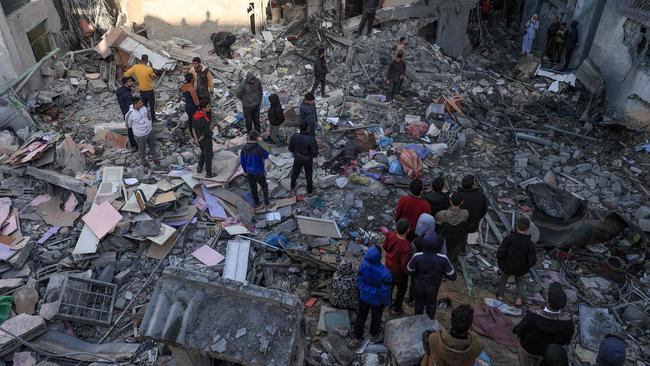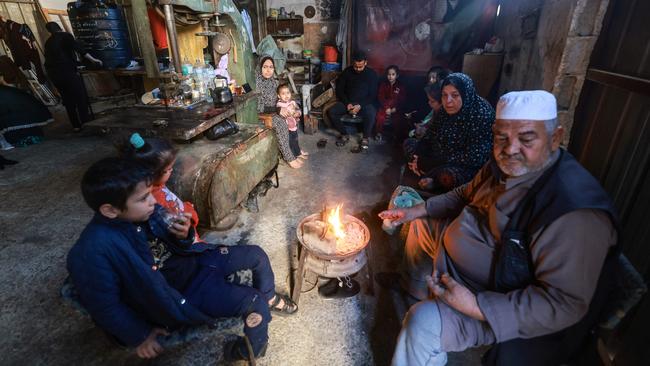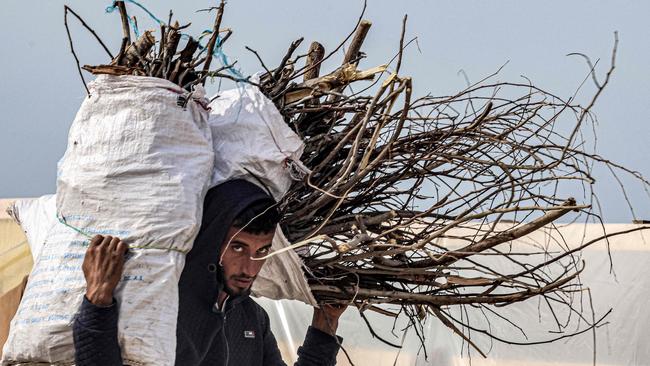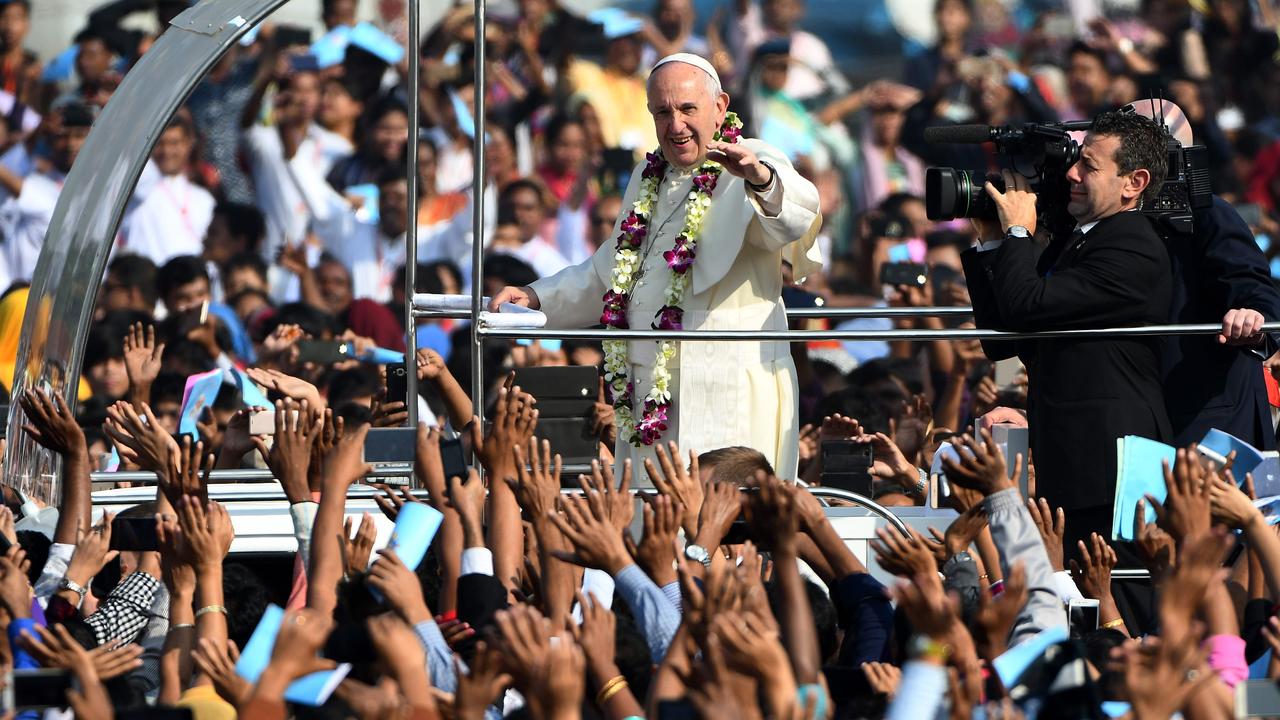‘Apocalyptic’ warning as Israel drives harder into southern Gaza
Gazans sought refuge in bombed-out hospitals as Israel vowed to ‘press harder’ in its war with Hamas.

Gazans sought refuge in bombed-out hospitals as Israel vowed to “press harder” in its war with Hamas, after the US blocked a ceasefire bid at the UN.
Aid groups say Gaza faces an “apocalyptic” humanitarian situation and is on the verge of being overwhelmed by disease and starvation.
At least 17,700 people, mostly women and children, have died in two months of fighting in the narrow strip of territory, according to the latest figures from Gaza’s health ministry.
Washington vetoed a UN resolution on Saturday AEDT that would have called for a ceasefire, a move strongly condemned by Palestinian and humanitarian groups.
But Israeli Prime Minister Benjamin Netanyahu said he appreciated “the correct stance the US took” and vowed to “continue our just war to eliminate Hamas”.
Israel has vowed to eradicate Hamas after its massacre on October 7, when militants broke through Gaza’s militarised border, killed about 1200 people and seized hostages, 137 of which remain captive, according to Israel.
Thousands of Gazans are sheltering in the al-Shifa hospital in Gaza City, which is no longer functioning and partly destroyed following an Israeli raid last month. Hundreds of makeshift tents fashioned from scraps of fabric and plastic filled the hospital’s courtyards and garden amid collapsed walls.

Resident Suheil Abu Dalfa, 56, said he fled heavy bombardment by Israeli planes and tanks.
“It was madness. A shell hit the house and wounded my 20-year-old son,” he said.
“We fled to the Old City, everything was just strikes and destruction … we didn’t know where to go. We don’t know if they will storm the hospital again.”
Hamas health authorities said 71 dead arrived at the al-Aqsa Martyrs hospital in Deir al-Balah over 24 hours, and 62 at Nasser hospital in the southern city of Khan Yunis.
Alexandra Saieh, of Save the Children, spoke of “maggots being picked from wounds and children undergoing amputations without anaesthetic”.
The situation “is not just a catastrophe, it’s apocalyptic”, Bushra Khalidi of Oxfam said.
Israeli army chief Herzi Halevi said his forces needed to “press harder” in its campaign in Gaza.
“We’re seeing more and more terrorists killed, more and more terrorists wounded, and in recent days we’re seeing terrorists surrendering – this is a sign their network’s falling apart,” he said.
National Security Adviser Tzachi Hanegbi told Israeli TV that 7000 “terrorists” had been killed, without elaborating on the source of the figure.
The Israeli army says it has lost 93 soldiers in the campaign, with two others injured in a failed bid to rescue hostages on Thursday.
Hamas said a hostage, 25-year-old Sahar Baruch, was killed in the operation, later confirmed by his kibbutz community in Beeri, one of the worst-hit on October 7.
UN secretary-general Antonio Guterres called a rare Security Council vote on a ceasefire overnight on Friday. But it was vetoed by the US, whose envoy Robert Wood said it was “divorced from reality” and would leave Hamas in power in Gaza.

Palestinian President Mahmud Abbas said he “holds the United States responsible for the bloodshed of Palestinian children, women and elderly people” after the veto.
Avril Benoit, head of the Doctors Without Borders (MSF) charity, described the US veto as a “sharp contrast to the values it professes to uphold”.
There was anger, too, in a residential area of Rafah decimated by an Israeli strike.
“What resolution did the security council ever approve and was implemented for our cause and Palestinian people?” local resident Mohammed al-Khatib said amid the rubble.
Iran, which backs Hamas, warned it could lead to an “uncontrollable explosion in the situation of the region”, while Turkish President Recep Tayyip Erdogan denounced the UN body as the “Israel protection council”.
An estimated 1.9 million of Gaza’s 2.4 million people have been displaced. Blocked from leaving the narrow territory, they have turned Rafah near the crossing with Egypt into a vast camp.
With air, naval and ground combat continuing, Israel’s military said it had found weapons in a school in Gaza City and was fired upon from an UN agency school and mosque.
Israel’s army said it retaliated on Saturday after unspecified “launches” from Lebanon, including with fighter jets.
Violence has also surged in the Israeli-occupied West Bank, where the health ministry said three people were killed on Saturday.
AFP



To join the conversation, please log in. Don't have an account? Register
Join the conversation, you are commenting as Logout